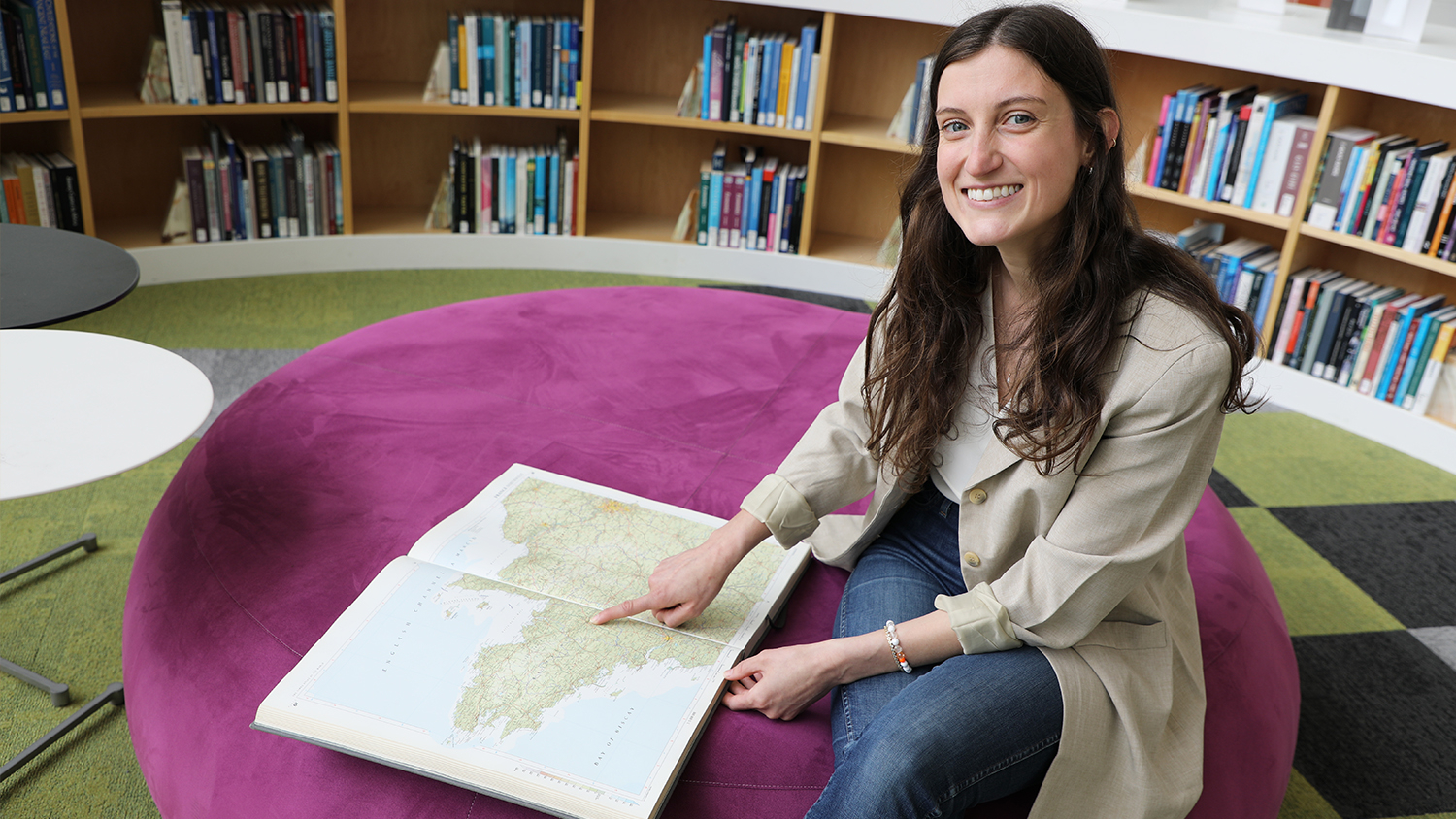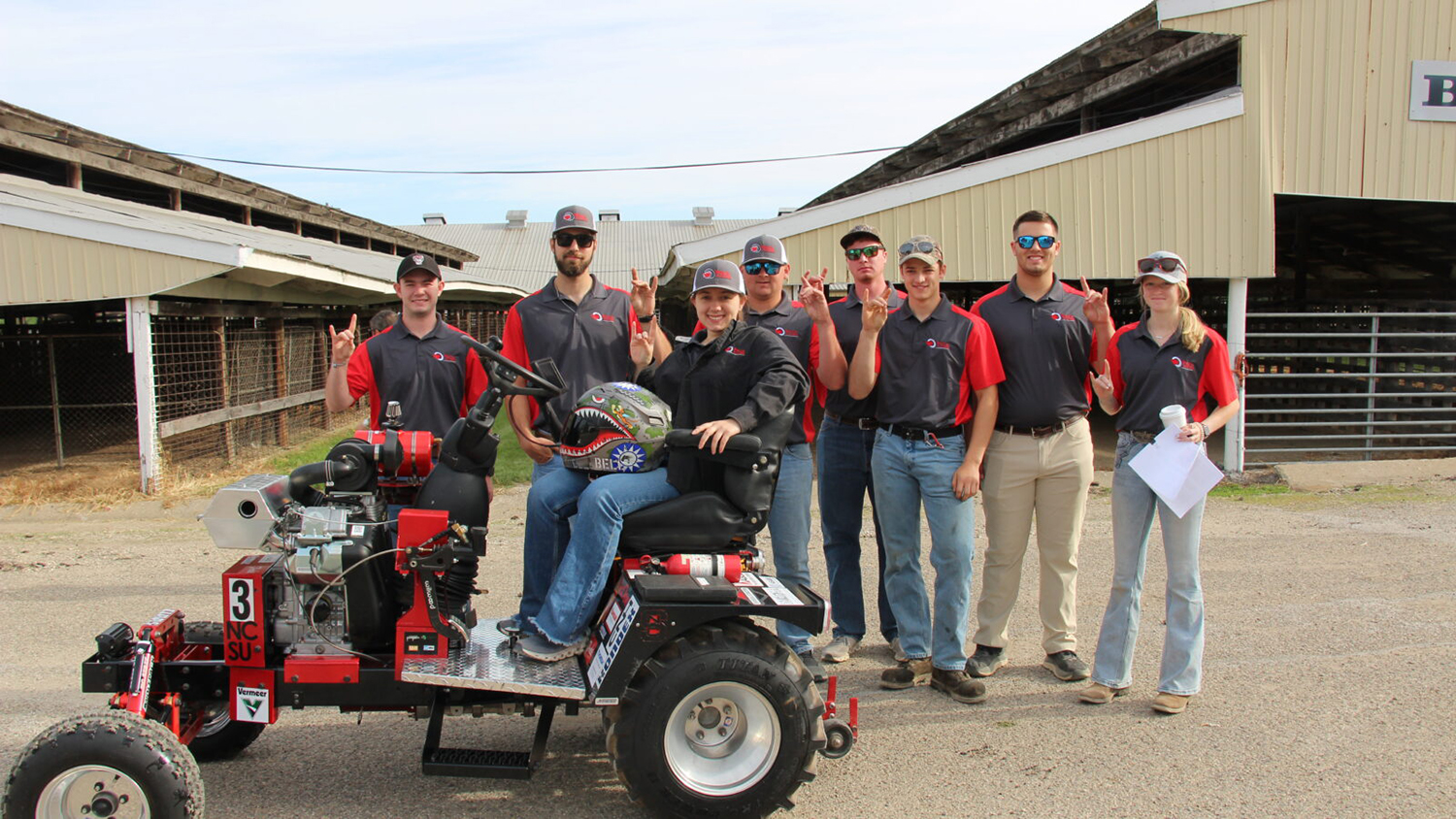Outstanding graduate continues research, receives national award

During his time at NC State, Dr. Kenneth “Kenny” Mineart was a leader in the lab and promoted safe, efficient operations. Formerly a graduate student, teaching assistant for three years and summer co-instructor, Mineart’s outstanding qualities as both a researcher and instructor were evident to his students and advisors.
Mineart’s research advisor, Dr. Richard J. Spontak, professor in the Department of Chemical and Biomolecular Engineering, praised his exemplary character and genuine desire to help his students. Spontak also said that Mineart was exceptionally insightful, hard working and “particularly talented in reaching his audience, both in the classroom and in technical presentations.”
Mineart was selected to receive the 2016 Eastman Chemical Student Award in Applied Polymer Science for the excellent quality of an oral presentation of his research paper, “Extending the Versatility of Thermoplastic Elastomers: From Physical Blending to Chemical Functionalization.” The award is sponsored by the Eastman Chemical Company in partnership with the American Chemical Society (ACS) Division of Polymeric Materials: Science and Engineering. Mineart is the first NC State student to receive the award since Eastman Chemical began sponsoring. A previous version of the award, the AzkoNobel Student Award, was awarded to NC State Ph.D. candidate Justin G. Kennemur in 2010. In 2015, Mineart was also invited to present at the Milliken Graduate Symposium, where he was selected by his peers to receive the “Deep Science” Award, and received 1st place in Engineering and Technology at the NC State Graduate Student Symposium.
Mineart said that his experience as a co-instructor at NC State was a rewarding, yet special, circumstance. Engineering graduate students do not often serve as a co-instructor, but Mineart was confident in his ability to teach the five-week summer session of Chemical Process Principles, so he interviewed with the department head and received the job. He said that the class was very busy with a small number of students, but getting to know them was one of the highlights of his teaching position. On the basis of his experience, he co-authored a paper that was published in Chemical Engineering Education, and he was also awarded the 2015 Future Faculty Award by the Chemical Engineering Division of the American Society for Engineering Education.
As a research mentor, Mineart dedicated himself to the success of his students and two of them received top honors recognition at the annual NC State undergraduate symposium.
Mineart’s time investigating polymers and preparing polymer films with specific nanoscale morphologies at NC State for five years was extremely valuable experience for his current interests; his first experience working with solutions – instead of solids – came during a university research exchange program in Berlin, Germany.
He is continuing his research on polymers in solution as a National Research Council postdoctoral fellow at the National Institute of Standards and Technology (NIST), which was founded in 1901 and is now part of the U.S. Department of Commerce. Today, NIST works with a range of technology from the nanoscale to the scale of a wide-body jet liner or a global communication network.
Mineart is part of the Materials Science and Engineering Division, where he works on self-assembling molecules with a target application of drug delivery capsules containing liquid membranes. His research includes combining the capsules with specialty polymers and doing an in-depth study of the resulting structures and stability of the capsules after the two are mixed.
He describes his experience at NIST as “good, so far” and said that he appreciates having access to all of the different facilities including the neutron source on which he is performing neutron scattering experiments. Mineart hopes to continue his research on specialty polymers in the future and discover the fundamental ways in which they interact with one another.
Mineart received a B.S. in chemical and biochemical engineering with honors and a chemistry minor from the University of Iowa (2011). He then continued his studies at NC State, where he earned M.S. (2013) and Ph.D. (2015) degrees in chemical engineering.


